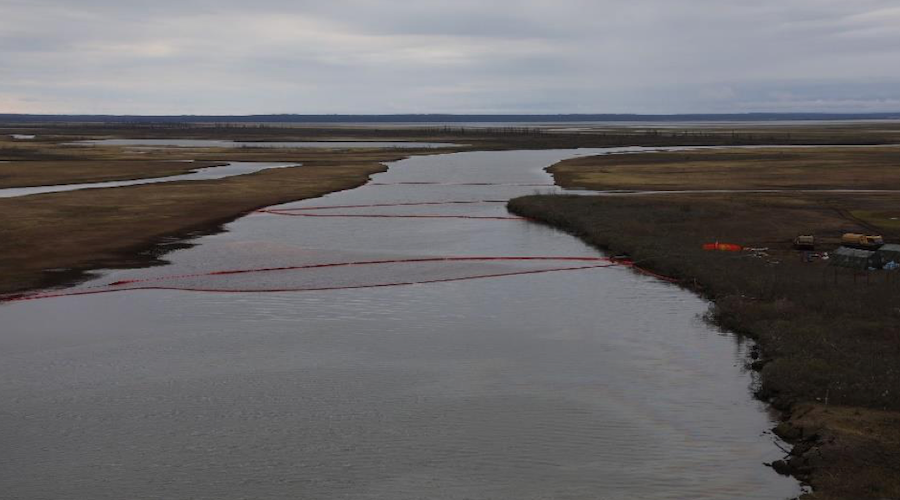
MMC Norilsk Nickel’s Vladimir Potanin said it’s impossible to estimate the cost of damages from May’s massive fuel spill in the Arctic until the miner completes the clean-up, which may extend into next year.
Nornickel has set aside $2.1-billion after Russia’s ecological watchdog asked it to pay for the damage caused by the spill of about 150 000 barrels of diesel from a storage tank into a river system.
The miner is challenging the size of the fine, saying the watchdog used the highest damage coefficient, which assumes the company did nothing to mitigate the impact of the spill.
The company said it has collected 90% of the spilled fuel and spent 10 billion rubles on the clean-up
“How much fuel actually is left in the rivers and how much the ecosystem can be restored – that still has to be assessed,” billionaire CEO Potanin said in interview near Moscow.
The 148 billion rubles Nornickel has been asked to pay would represent the largest environmental fine in Russian history.
The company said it has collected 90% of the spilled fuel and spent 10 billion rubles on the clean-up — it wants 8.5-billion rubles of that to be counted as part of its fine — and plans to invest more in recreation for the area.
Nornickel put sorbent on river banks where there’s still fuel and planned to collect it later. But ecologists said that would be bad for tundra and advised washing the diesel back into the water to collect, a process the company has started and which will last until next year, Potanin said. It’s also looking at whether fish and deer crucial to the indigenous population have been affected.
The miner has said thawing permafrost contributed to the accident, the risks of which were underestimated by Nornickel and others too, Potanin said. It’s reviewing its risk management and because human errors could also be to blame, there will now be zero tolerance to breaching ecological protocols and stricter ecology key performance indicators for the management.
Nornickel plans to spend 13-billion rubles in the next two years replacing and upgrading infrastructure, and aims to ship in fuel when needed to cut down on the amount stored in tanks. The company also plans to switch to less dangerous fuel types, like gas, Potanin said.
Separately, the producer continues to work on its sulfur dioxide capturing project in Norilsk, where costs have reached about $3.7-billion, Potanin said. The gas will be turned into acid and then neutralized into gypsum by limestone. Nornickel found a limestone deposit nearby to develop and is preparing to build a tailings facility for the gypsum as well as sites for the capturing project.
(By Yuliya Fedorinova)
Comments